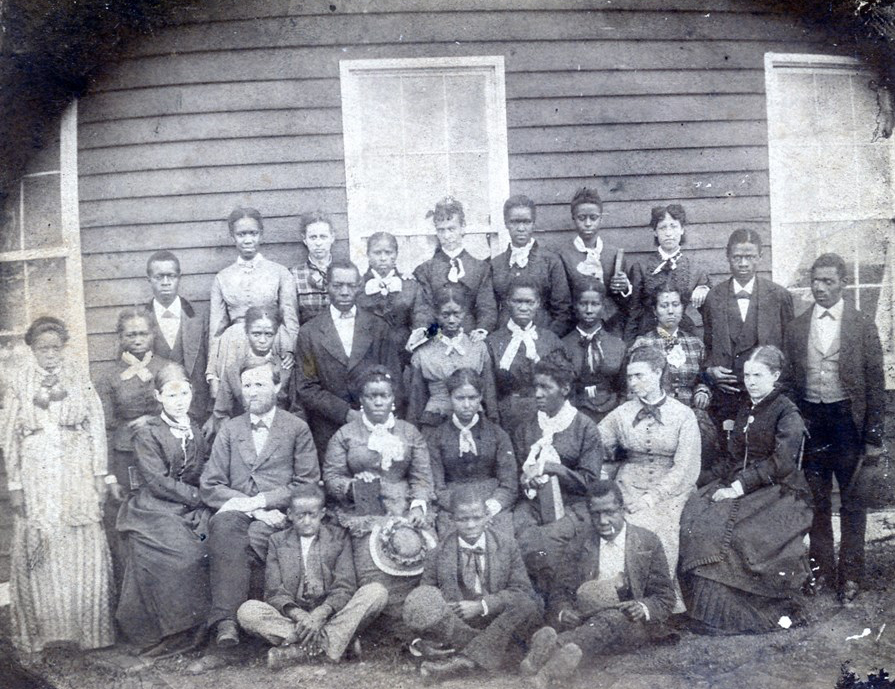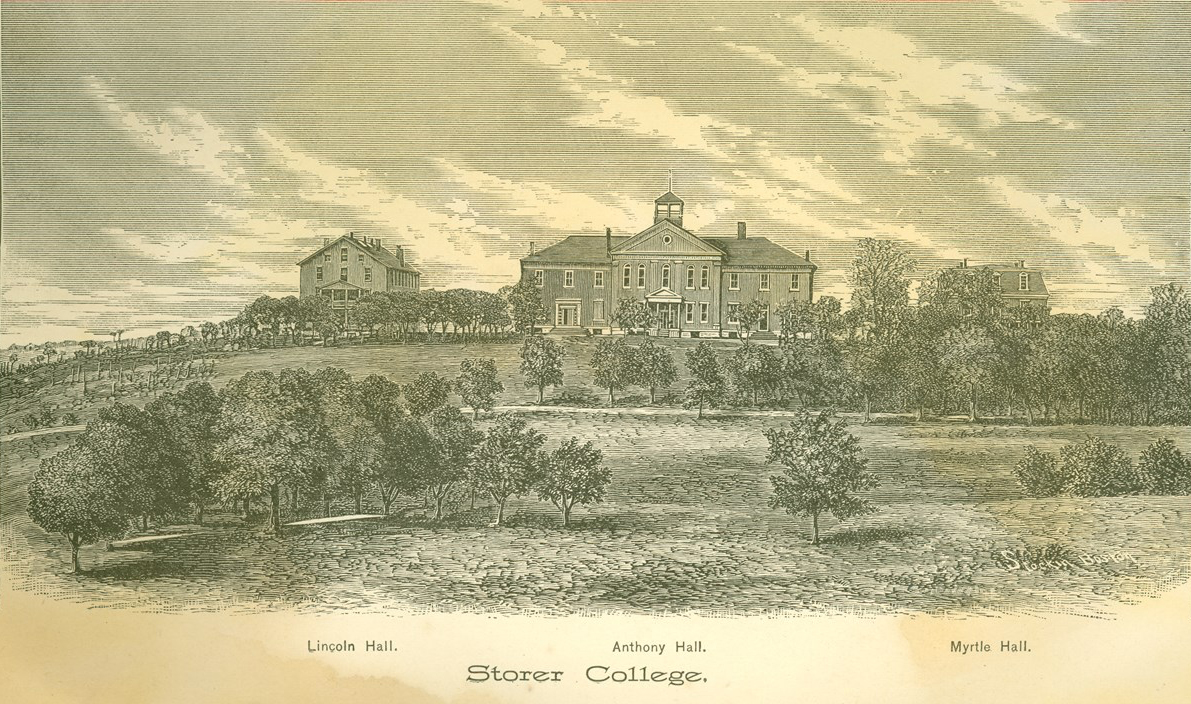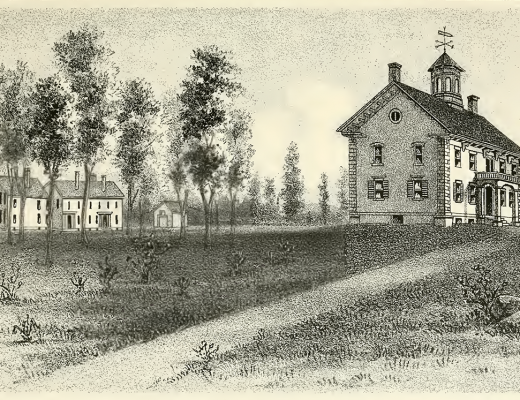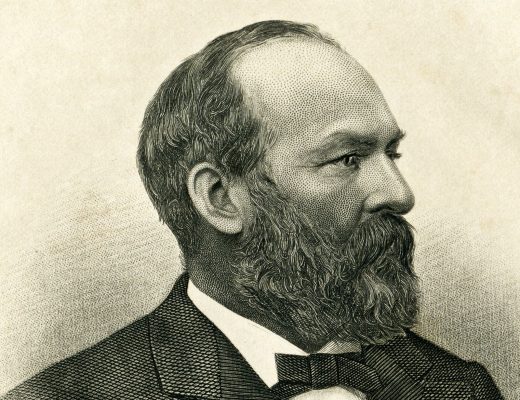Free Will Baptists and Abolition
By David Joslin
Historians have a way of taking a few decades, lumping them together, and assigning them a unique role in the human story. Each decade has its own marks of identification, and it is as though, had one been there at the right time, the transition from one age into the next would have easily been detected. However, not many recognize change in social attitudes when they occur. Most sleep through the changes as though they were not even there.
American society experienced drastic social changes between 1850 and 1915. During this time, the great Civil War was fought. Following the war, immigration, urbanization, educational reform, and industrialization were the movements of the era.
These movements were problems, not only within themselves but they magnified the country’s spiritual and social ills as well. Social reformers rose up during this time. Northern Free Will Baptists became absorbed in various social reforms including the total emancipation of human slavery.
The Free Will Baptist hymnal The Psalmody, published in 1853, contained several songs relating to Free Will Baptist thought and position on slavery. One song was titled, The Slave Made Free:
I saw him kneel in calm despalr,
And lift his fettered hands to heaven:
No hope was blended in his prayer,
That slavery’s chains would e’er be riven.
I wept in anguish thus to see,
A man, a brother, doomed a slave;
My native land, I blushed for thee,
And prayed indulgent Heaven to save.
I turned me to that slave again, No longer lay he prostrate there;
He’d heard the word, Thou’rt free,
And then he bounded light in freedom’s air.
He wakes in new existence now, Assumes the rank his Maker gave;
The marks of slavery leave his brow, The boon is his he feared to crave.
Prior to the Civil War, the Free Will Baptists in the North were staunch abolitionists, actively involved in open defiance to all laws favoring slavery, especially the Fugitive Slave Law signed by President Millard Fillmore in 1850. That law stated that any person aiding a runaway slave by offering shelter, food, or assistance was liable to six months imprisonment and a fine of $1,000.
Nonetheless, many Free Will Baptist churches and conferences passed resolutions stating their position on the abolition of slavery and opposition of obedience to the Fugitive Slave Law.
The Fifteenth General Conference of Free Will Baptists held at Rochester, New York in 1853, resolved:
That we re-affirm our opposition to the whole system of American slavery; holding it to be absurd in the light of reason, infamous in the eye of justice, a deadly foe to human welfare, a libel to the Decalogue, and a reckless attack on the religion of Christ; and the only change we would recommend in our denominational attitude and policy on this subject, is, to take an advanced position in our warfare against the system, and to give a more open and public expression to our hostility.
(Page 424, Minutes of the General Conference)
These abolitionist efforts to destroy the institution of slavery by defiance of all the laws upholding it constitute one of the stirring epics in American history. All the reform movements of the 19th century were overshadowed by this anti-slavery crusade that eventually culminated in the march of brother against brother in the Civil War.
Many prominent Free Will Baptists became actively involved in the formation of the Republican Party. Dr. George Ball, Rev. Oren B. Cheney, and Rev. George Day were delegates to the Republican Party Convention in 1856. When Abraham Lincoln became the 16th president of the United States in 1860, the Southern states seceded and war followed.
In 1867, two years after the war, Storer College was founded at Harper’s Ferry, West Virginia, through the cooperative efforts of Free Will Baptists, the Freedman’s Bureau, and a gift of $10,000 from John Storer, a wealthy Maine businessman.
U.S. Congressman James A. Garfield (Ohio) was instrumental in pushing the U.S. House of Representatives to pass a resolution granting the government property at Harper’s Ferry to Free Will Baptists. Garfield earlier attended Geauga Seminary, a Free Will Baptist school in Chester, Ohio. He was destined to become the 20th president of the United States in 1880. Ironically, he was the second president to be assassinated. Abraham Lincoln was the first.

Within two years, Free Will Baptists were teaching over 2,000 students in grade schools in the area of the Shenandoah Valley of Virginia. Rev. 0.B. Cheney and Rev. N.C. Brackett spearheaded these efforts. In almost every place where the schools were taught, the gospel was also preached, and Free Will Baptist churches were organized.
Makeshift classrooms were set up initially in the Lockwood House, one of the four former armory residences donated to the school by the federal government. These buildings became the nucleus for the new college. As more funds became available, the college expanded its facilities to make room for the growing student body. By 1889, the college claimed an enrollment of 273 students on the college level.
In August 1906, the second conference of the Niagara Movement met at Storer College. The movement, forerunner of the National Association for the Advancement of Colored People, was the first national organization that aggressively and unconditionally demanded for its people the same human rights enjoyed by white America. The first meeting was conducted at
Niagara Falls, Canada, due to the nature of the movement and fear of reprisals.
During the second meeting of the Niagara Movement at Storer College, their purpose was stated as follows:
The men of the Niagara Movement…turn toward the nation and ask in the name of ten million the privilege of a hearing. In the past years, the work of the Negro-hater has flourished in the land. Step by step, the defenders of the rights of American citizens have retreated. The work of stealing the black man’s ballot has progressed and the fifty and more representatives of stolen votes
Against this, the Niagara Movement eternally protests. We will not be satisfied to take one jot or tittle less than our full manhood rights. We claim for ourselves every single right that belongs to a free born American, political and social; and until we get these rights will never cease to protest and assail the ears of America. The battle we wage is not for ourselves alone but for all true Americans.
(From Address to the Country issued by the second annual Niagara Meeting, held August 16-19, 1906, Storer College, Harper’s Ferry, West Virginia.)
The NAACP was founded in New York City in 1909 by 60 black and white citizens. The Niagara Movement dissolved itself that same year in favor of the NAACP, with many of its members uniting with the newer organization.
In 1955, following the decision of the Supreme Court of the United States regarding desegregation, Storer College closed its doors, and the property was deeded to the National Park Service.
About the Writer: The late David Joslin served as chairman and long-time member of the Free Will Baptist Historical Commission.



